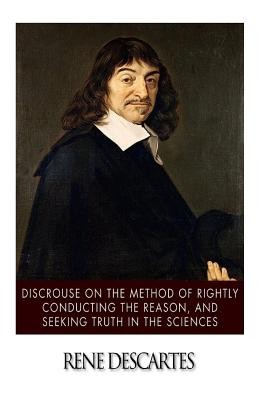
- We will send in 10–14 business days.
- Publisher: CreateSpace Independent Publishing Platform
- Year: 2014
- Pages: 34
- ISBN-10: 1500167320
- ISBN-13: 9781500167325
- Format: 15.2 x 22.9 x 0.2 cm, softcover
- Language: English
- SAVE -10% with code: EXTRA
Discourse on the Method of Rightly Conducting the Reason, and Seeking Truth in the Sciences (e-book) (used book) | bookbook.eu
Reviews
Description
René Descartes (1596-1650) is not only one of the men who belongs in the pantheon of the West's greatest thinkers: he influenced everyone else who belongs there too. Descartes was a French philosopher, mathematician and writer who spent most of his life in the Dutch Republic during its Golden Age, where he earned the title "Father of Modern Philosophy." Indeed, subsequent Western philosophy came from his writing on empiricism and thought, which are still studied today. His work in mathematics helped establish the Cartesian coordinate system-allowing algebraic equations to be expressed as geometric shapes. Descartes was also one of the key figures in the Scientific Revolution, leaving a lasting mark with Discourse on the Method, one of the most important works ever written in the West. The Discourse is broken down into six parts, which Descartes described as 1. various considerations touching the Sciences; 2. the principal rules of the Method which the Author has discovered; 3. certain of the rules of Morals which he has deduced from this Method; 4. the reasonings by which he establishes the existence of God and of the Human Soul; 5. the order of the Physical questions which he has investigated, and, in particular, the explication of the motion of the heart and of some other difficulties pertaining to Medicine, as also the difference between the soul of man and that of the brutes; and 6. what the Author believes to be required in order to greater advancement in the investigation of Nature than has yet been made, with the reasons that have induced him to write.
- Publisher: CreateSpace Independent Publishing Platform
- Year: 2014
- Pages: 34
- ISBN-10: 1500167320
- ISBN-13: 9781500167325
- Format: 15.2 x 22.9 x 0.2 cm, softcover
- Language: English English
René Descartes (1596-1650) is not only one of the men who belongs in the pantheon of the West's greatest thinkers: he influenced everyone else who belongs there too. Descartes was a French philosopher, mathematician and writer who spent most of his life in the Dutch Republic during its Golden Age, where he earned the title "Father of Modern Philosophy." Indeed, subsequent Western philosophy came from his writing on empiricism and thought, which are still studied today. His work in mathematics helped establish the Cartesian coordinate system-allowing algebraic equations to be expressed as geometric shapes. Descartes was also one of the key figures in the Scientific Revolution, leaving a lasting mark with Discourse on the Method, one of the most important works ever written in the West. The Discourse is broken down into six parts, which Descartes described as 1. various considerations touching the Sciences; 2. the principal rules of the Method which the Author has discovered; 3. certain of the rules of Morals which he has deduced from this Method; 4. the reasonings by which he establishes the existence of God and of the Human Soul; 5. the order of the Physical questions which he has investigated, and, in particular, the explication of the motion of the heart and of some other difficulties pertaining to Medicine, as also the difference between the soul of man and that of the brutes; and 6. what the Author believes to be required in order to greater advancement in the investigation of Nature than has yet been made, with the reasons that have induced him to write.


Reviews